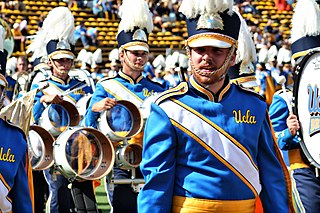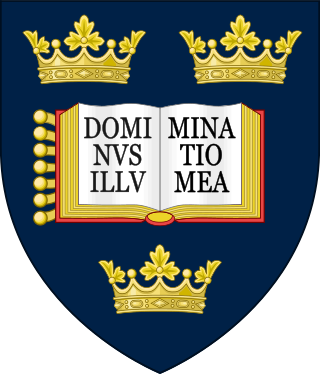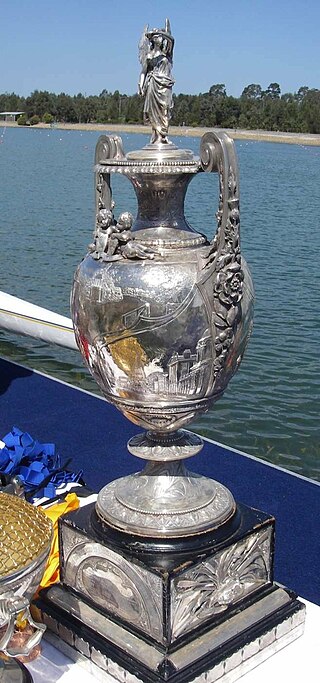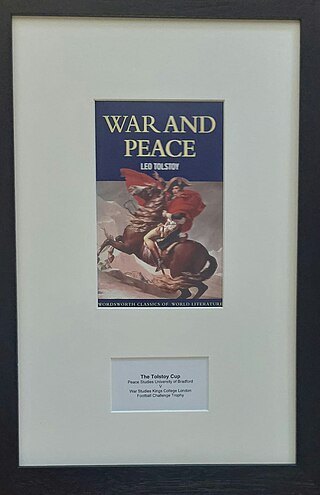
Oxbridge is a portmanteau of the Universities of Oxford and Cambridge, the two oldest, wealthiest, and most famous universities in the United Kingdom. The term is used to refer to them collectively, in contrast to other British universities, and more broadly to describe characteristics reminiscent of them, often with implications of superior social or intellectual status or elitism.

Selwyn College, Cambridge is a constituent college of the University of Cambridge. The college was founded in 1882 by the Selwyn Memorial Committee in memory of George Augustus Selwyn (1809–1878), the first Bishop of New Zealand (1841–1868), and subsequently Bishop of Lichfield (1868–1878). Its main buildings consist of three courts built of stone and brick. There are several secondary buildings, including adjacent townhouses and lodges serving as student hostels on Grange Road, West Road and Sidgwick Avenue. The college has some 60 fellows and 110 non-academic staff.

Sporting colours or just colours are awarded to members of a university or school who have excelled in a sport. Many schools do not limit their use to sport but may also give colours for academic excellence or non-sporting extra-curricular activities, Colours are traditionally indicated by the wearing of a special tie or blazer.

School colors, also known as university colors or college colors, are the colors chosen by a school, academy, college, university or institute as part of its brand identity, used on building signage, web pages, branded apparel, and the uniforms of sports teams. They can promote connection to the school, known as "school spirit", and help differentiate it from other institutions.

Pairs of schools, colleges and universities, especially when they are close to each other either geographically or in their areas of specialization, often establish a university or college rivalry with each other over the years. This sports rivalry can extend to both academics and athletics, and sometimes even politics, the middle being typically better known to the general public. These schools place an added emphasis on emerging victorious in any event that includes their rival. This may include the creation of a special trophy or other commemoration of the event. While many of these rivalries have arisen spontaneously, some have been created by college officials in efforts to sell more tickets and support their programs.

The Harvard–Yale Regatta or Yale-Harvard Boat Race is an annual rowing race between the men's heavyweight rowing crews of Harvard University and Yale University. First contested in 1852, it has been held annually since 1859 with exceptions during major wars fought by the United States and the COVID-19 pandemic. The Race is America's oldest collegiate athletic competition, pre-dating The Game by 23 years. It is sometimes referred to as the "Yale-Harvard" regatta, though most official regatta programs brand it "Harvard-Yale".

The Varsity Match is an annual rugby union fixture played between the universities of Oxford and Cambridge in England. The event began in 1872 with the first men's match, with interruptions only for the two World Wars and the COVID-19 pandemic. From 1921 to 2023 the game was played at Twickenham Stadium, London and usually took place in early December. The game is now played in March and will take place at StoneX Stadium in 2024.
A blue is an award of sporting colours earned by athletes at some universities and schools for competition at the highest level. The awarding of blues began at Oxford and Cambridge universities in England. They are now awarded at a number of other British universities and at some universities in Australia and New Zealand.
The Welsh Varsity is an annual sporting event contested by Cardiff University and Swansea University, usually in early April. The sports contested include rugby union, hockey, cricket, squash, badminton, lacrosse, rowing, golf, basketball, football, American football, ultimate frisbee, netball, volleyball, fencing and an array of other sports. Profits go to charity. The event is held over the course of a week, with some sports competing over a weekend due to the nature of the sport. The majority of the games are held on the Wednesday afternoon, with the centrepiece rugby union match between the two sides held in the evening and often attended by in excess of 18,000 supporters.

The Oxford and Cambridge Cup is the trophy awarded to the winner of the Australian University Championship Men's Eight, and is competed for annually at the Australian University Games or the Australian University Rowing Championships. It is the oldest inter-University competition in Australia. The cup is awarded to the winning men's Eight over a standard 2,000m course.

Oxford University Cycling Club (O.U.C.C.) is a cycling club for students and associated members of the University of Oxford. Via earlier incarnations, the Dark Blue Bicycle Club (D.B.B.C.) and the Oxford University Bicycle Club (O.U.Bi.C.), it has a history reaching back to the very origins of club and competitive cycling.
The Rugby League Varsity Match is an annual rugby league match between Cambridge University and Oxford University. The first Varsity match took place on Sunday 26 April 1981 at Craven Cottage.

The Tolstoy Cup is an annual football match played between the students of the Department of Peace Studies at the University of Bradford and the Department of War Studies at King's College London since 2007, though the fixture was first played in 1992. The complete list of fixtures and results up to June 2024 appears in the Results table below. The competition is named after War and Peace, the 1869 novel written by the Russian author Leo Tolstoy.

The University of Cambridge is a public collegiate research university in Cambridge, England. Founded in 1209, the University of Cambridge is the world's third-oldest university in continuous operation. The university's founding followed the arrival of scholars who left the University of Oxford for Cambridge after a dispute with local townspeople. The two ancient English universities, although sometimes described as rivals, share many common features and are often jointly referred to as Oxbridge.
Imperial College School of Medicine Students' Union (ICSMSU) is the students' union of the Imperial College School of Medicine. It is charged with representing and advocating for the educational, pastoral, social and extracurricular needs of all the undergraduate students within the Faculty of Medicine of Imperial College London, and is a constituent union of Imperial College Union.

College sports or college athletics encompasses non-professional, collegiate and university-level competitive sports and games.
The Christie Cup is an annual varsity match between the Universities of Leeds, Liverpool and Manchester in numerous sports and has been held since 1886. After the well-known rivalry between Oxford and Cambridge, the Christie's Championships is the oldest inter–university competition on the English sporting calendar.
The 110th Boat Race took place on 28 March 1964. Held annually, the event is a side-by-side rowing race between crews from the Universities of Oxford and Cambridge along the River Thames. The Oxford crew was the heaviest in Boat Race history. The race was won by Cambridge by six-and-half lengths. Cambridge won the Women's Boat Race.











